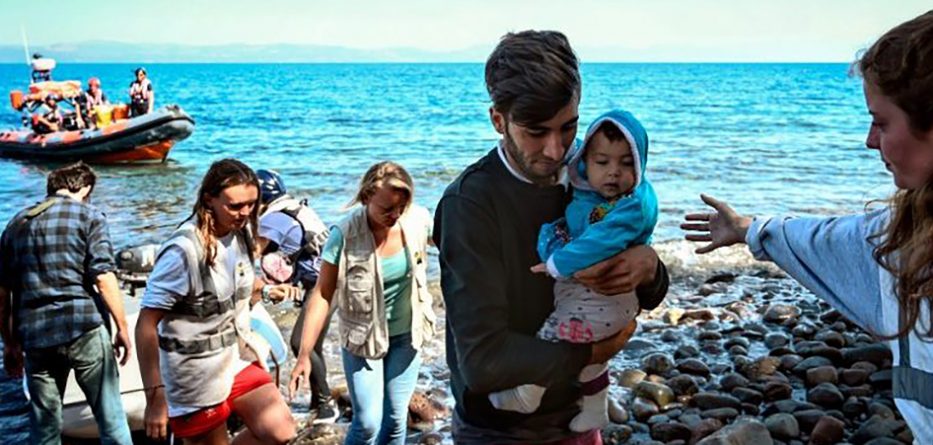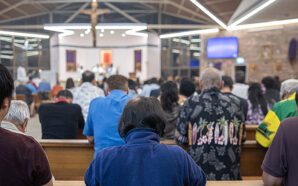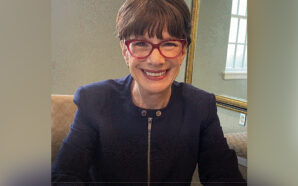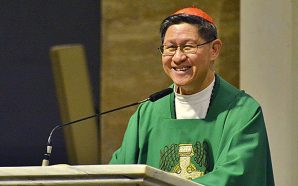Chaim Potok’s novel, I Am the Clay, is set in the final stages of the three year Korean War (June 1950-July 1953). It tells of a small boy rescued by an elderly peasant woman who finds him semi-conscious and almost frozen to death in the ditch where she and her husband have taken shelter. Despite her husband’s vehement protests, the woman insists on dragging the boy on to the cart that serves as their transport by day and their resting place by night. That cart holds all that this displaced couple have in the world.
For the man, the little boy becomes an intolerable burden in an already hopeless existence. He resents the attention his wife gives to the boy and becomes almost insanely jealous. At one point, the woman departs with the boy in search of help. They are absent for a long time. The old man grows wild with hunger and begins to rage within himself: “Does she still not know after all these years who comes first? First the husband, then the stranger.” When she fails to return, he is gripped by fear. He cannot imagine a life without this woman to prepare his food and wash his clothes. The old man’s world view has no place for a child who deflects his wife’s attention from himself. Neither is their room in his vision for any disturbance of the existing order: “First the husband, then the stranger….Who would prepare food and wash clothes and work with him?” The man accepts as normal a hierarchy in which the woman is subservient to the husband: “Who would prepare his food and wash his clothes?” He accepts as normal his prior right over the rights of the stranger.
As the story continues, the boy becomes more and more conscious of the threat he is to the old man. His constant concern has been to remain small and inconspicuous. Reflecting on his attempts to survive and yet remain silent and obscure, he asks himself: “Will I live all my life small?” He recalls the innumerable times he has had to make himself small in order to survive the venom of the old man. Finally, he focusses on a moment when he was responsible for saving the straggling caravan of refugees from destruction by fire. At that moment, he realises, he was anything but small. From now on, he determines, there will be “no more small”. He takes his own power and prevails.
In a hierarchical world, “small” or seemingly insignificant strangers are ranked last of all. In our times, however, “small” strangers and subordinated “others” are beginning to cry out, “No more small! No more being silenced!” Many of those undervalued by the powerful in our world are refusing to be silenced or suppressed on account of their gender, sexuality, race, ethnicity, class or access to life sustaining resources. The earth itself is mourning its maltreatment at the hands of powerful interests and of those who espouse a “prosperity gospel”. Pope Francis has reminded us that the earth itself, “burdened and laid waste, is among the most maltreated of our poor; she ‘groans in travail’ (Rom 8:22) LS 2.” Birds and insects are disappearing in their billions in the fires that ravage my country and other parts of the globe. Many of the creatures that remain may seem “small” or insignificant, but they have significance and they have voice, voice that needs to be heard crying out, “No more small”.
The refusal of the marginalised to be silenced is at the heart of our biblical faith traditions. An ancient Jewish lyricist declared that the God of Israel hears the cries of the poor (Psalm 34). The prophet Hosea bewailed the devastation caused by humans, to the point that even “the land mourns and all that live in it perish, together with the wild beasts and the birds of the air; even the fish of the sea are perishing” (4:3). From a biblical and gospel perspective, the cries of the Earth’s poor and excluded are heard in the conversion of those who do violence to the “small” and in the compassionate responses of the just. The United Nations World Social Justice Day on February 20 provides an opportunity for us, as inheritors of the biblical tradition, to reflect on our origins and on how we respond to the cries of those rendered “small” in our planetary home.
Social justice is a modern expression for an ancient concept that was espoused by the prophets of Israel and, from a Christian perspective, lived in its fullest expression by Jesus of Nazareth, God-With-Us. When the term “social justice” was coined, it referred exclusively to justice for all in the human community. The focus was on justice for those rendered poor or “small”. Over recent decades, a growing consciousness of the interconnection of all things has brought with it the realisation that there is no social justice without environmental justice. There is likewise a growing realisation that social justice and environmental justice constitute “ecological justice” or justice for our common home and all of its inhabitants, human and other-than-human.
On this 2020 World Social Justice Day, we might recall that our tradition of justice and compassion is grounded in the Story of Emmanuel, of God-with-us (with the cosmos, with our planetary home and with all that inhabits our home). And the Story of Emmanuel is grounded in the Story of the God of Israel who freed a small band of slaves from the “politics of oppression” for a new way of being and living in the justice and the mercy of YHWH. The very name of the God of Israel denotes freedom. The Hebrew allows for the following translations of YHWH: I AM WHO I AM; I CAUSE TO BE WHAT I CAUSE TO BE; I WILL BE WHO I WILL BE. For Israel, living in the justice and compassion of YHWH meant, at the most basic level, freedom from slavery and oppression for a very small and seemingly insignificant people. Living in the justice and compassion of YHWH was to mean freedom for participation in a society that was founded on liberation from slavery.
When Israel forgot its origins and established its own oppressive political and social structures, the prophets called it back to reflect on its origins as a people and to re-member its story of liberation from oppression. It is important to note that Israel came into being in a patriarchal world, as did Christianity. Over the centuries, both Judaism and Christianity reinscribed many of the cultural norms of that patriarchal world, including slavery, so that the justice and freedom sought was not what our contemporary “ecological” prophets might affirm as true justice and freedom. A meaningful participation in the 2020 United Nations World Social Justice Day might involve a serious commitment to the stranger first and to no more small until such time as true justice prevails on our planet, justice that recognises the significance of everyone and everything.
Republished with permission from Mercy eNews Issue #854, 19 February 2020.








